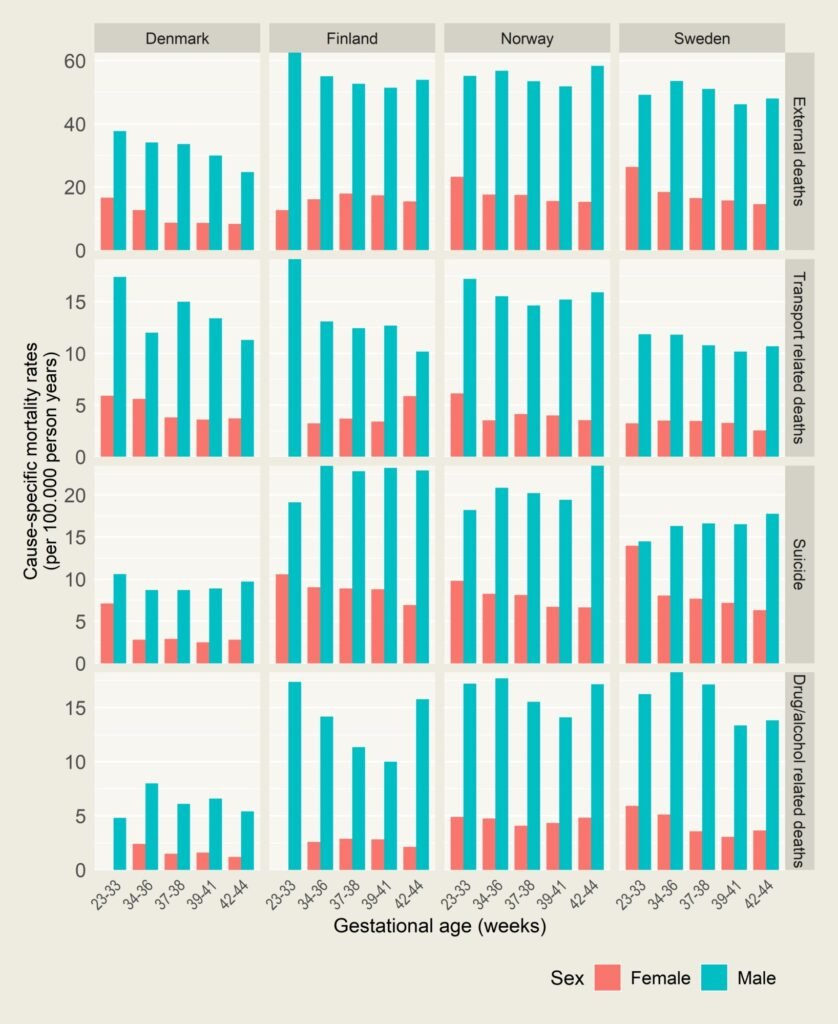Premature babies are considered the most vulnerable among us, facing various health and life challenges that make them at higher risk for mortality due to illness. A recent major Nordic study led by Professor Kari Risnes from the Norwegian University of Science and Technology (NTNU) has shed light on the increased risk of premature children facing unexpected deaths from external causes such as road traffic accidents, substance abuse, and suicide.
The study, which analyzed birth data and causes of death for nearly 37,000 individuals aged between 15 and 50 who were born prematurely in Norway, Sweden, Denmark, and Finland, revealed some surprising findings. One of the most significant findings was the nearly 80% higher risk of suicide for prematurely born women compared to individuals born at full term. This elevated suicide risk was not observed in prematurely born men, highlighting a unique vulnerability in prematurely born women.
Suicide is a serious societal issue, with the majority of suicides being committed by men and being the leading cause of death among young men globally. The study’s findings raise questions about the factors contributing to the increased suicide risk in prematurely born women and emphasize the importance of providing support and understanding to this vulnerable group.
Premature birth, defined as birth before 37 weeks of pregnancy, presents challenges that can affect individuals throughout their lives. While survival rates for premature babies have significantly improved over the years, they still face higher risks of various health conditions and mental disorders compared to those born at full term.
The research also investigated correlations between premature birth and external causes of death, such as road traffic accidents, substance abuse, and suicide. The study found that prematurely born individuals, especially women, are more vulnerable to these external causes of death, with some surprising variations among the Nordic countries.
The researchers hope that their findings will contribute to updating guidelines for the follow-up of premature infants and provide better support for families and individuals facing the challenges associated with premature birth. By understanding and addressing the vulnerabilities of prematurely born individuals, we can work towards mitigating the risks they face and improving their overall well-being.
Overall, the study highlights the importance of recognizing the unique challenges faced by prematurely born individuals and the need for tailored support and interventions to address their specific needs. By delving deeper into the factors contributing to their vulnerabilities, we can work towards creating a more inclusive and supportive society for all individuals, regardless of their birth circumstances.


